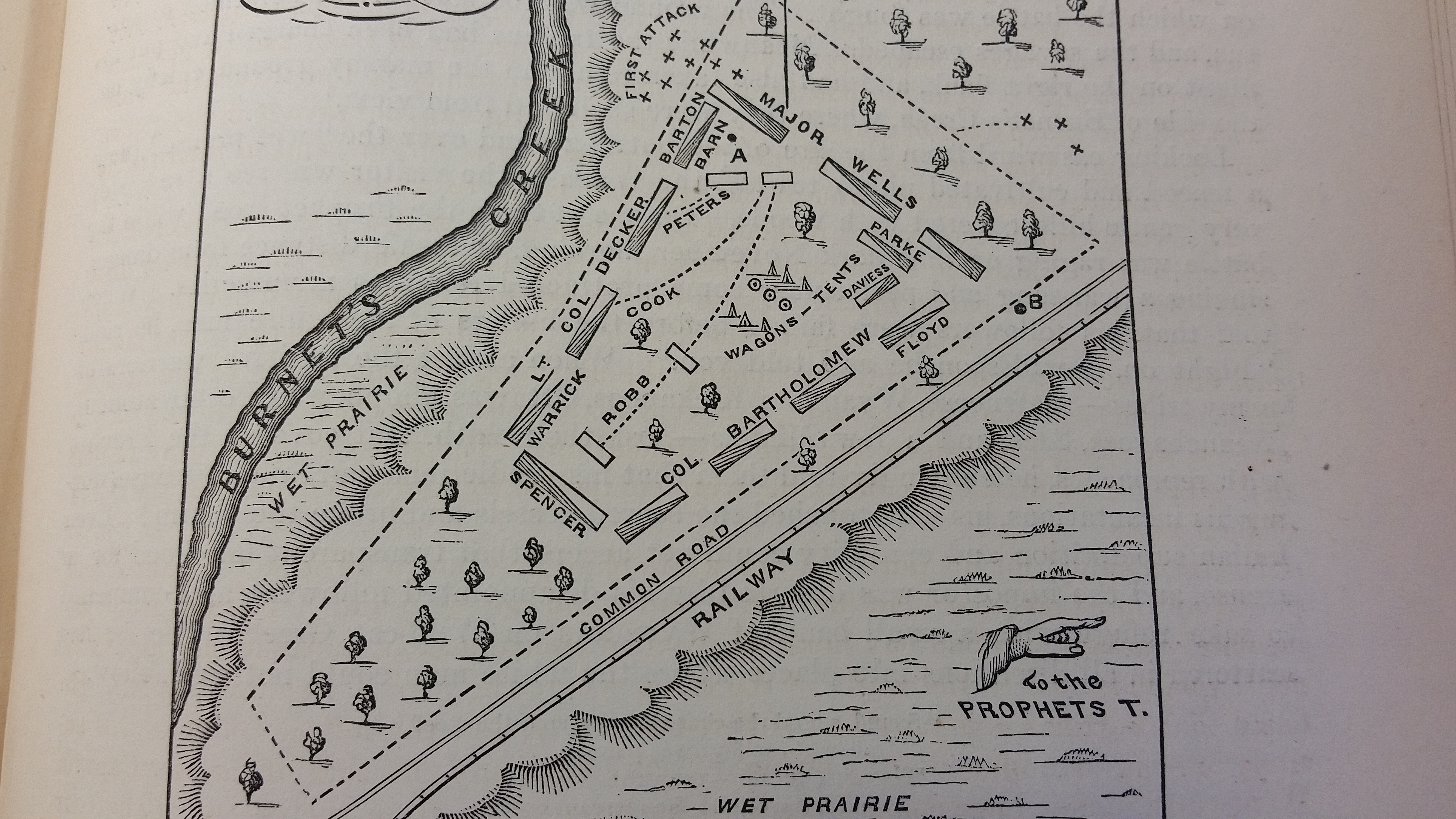
Tippecanoe is a battle that lends itself to endless research and questioning. It is one of the best-known battles of the time yet one of the least understood, to this day. While looking through some footnotes in Alec R. Gilpin's The War of 1812 in the Old Northwest, a 1958 work which remains the best monograph on the subject, I discovered a link to Colonel Matthew Elliot's report on the battle. It concerns the fate and identity of the African American teamster who was captured by Indians and released back to the American camp on the eve of the battle, to misinform and lull General Harrison.
Apparently, the man's name was Ben (no source mentions a last name). The American account of what happened is that a day or so before the battle, Ben mentioned to his friends, other African Americans who were employed as bullock or ox drivers, that he was not afraid to enter Prophets Town. In other words, he was planning on deserting to the Indians. It's possible that he had good reasons, too. Although the Indiana Territory was a free state, many of the Kentuckians who marched with Harrison were slave owners. There's nothing that would have kept them from bringing slaves along or hiring them to the army as teamsters. Even if Ben was not a slave, it's also possible that he was an indentured servant, which was in essence a quasi slavery. Many slave owners, including William Henry Harrison, who immigrated to the free territories brought their slaves with them, and manumitted them in exchange for the freedman signing a term of indentured servitude. More research is needed.
Whatever his motives, Ben got away and soon found himself in the Indian village. It appears that he got a different welcome than he was expecting: according to Elliot's informant, he was threatened with death. Probably the Prophet thought that he might be a American spy. The Indians made him divulge his knowledge of the American plans; at the same time, three Indians who had crept too close into the American camp were captured and sent back to Prophets Town with a demand for Ben's release.
What happened next nearly got Ben shot or hung. He was released from the Indian village with instructions to lull General Harrison by saying there were no plans for an Indian attack (this might have been true). He claimed that he entered camp at night without being challenged by the sentries. A Captain Wilson found him near Harrison's tent that night, hours before the battle started. Afterwards he was tried by a drum head court martial, which is to say an improvised trial in the field by the regimental officers of the army. He was sentenced to die for desertion and attempted assassination of General Harrison.
He would have been executed, but General Harrison (who was in any case a soft hearted man when it came to capital punishment), had a change of heart: "The fact is I began to pity him, and could not screw myself up to the point of giving the fatal order..." he reported in a letter to Kentucky militia general Scott later, "I had all the commissioned officers assembled, and told them that his fate depended on them. Some were for executing him, and I believe that a majority would have been against him, but for the interference of the gallant (Captain Josiah) Snelling." Snelling made a speech to his fellow officers of the 4th US Regiment of Infantry and convinced them to vote for mercy, after which Ben was pardoned and let go.
It's doubtful that Ben ever planned to assassinate William Henry Harrison, and also noteworthy that a civilian teamster could be tried for the military capital offense of desertion. However, multiple sources indicate that some followers of the Prophet planned to take out Harrison by infiltrating his camp, hoping that without the charismatic governor and general, the Americans would panic and flee into the Wabash. Several Indians were killed near Harrison's tent, and an aide riding a light-colored horse that looked similar to Harrison's was shot and killed by the general's side that morning.
No comments:
Post a Comment
Note: Only a member of this blog may post a comment.